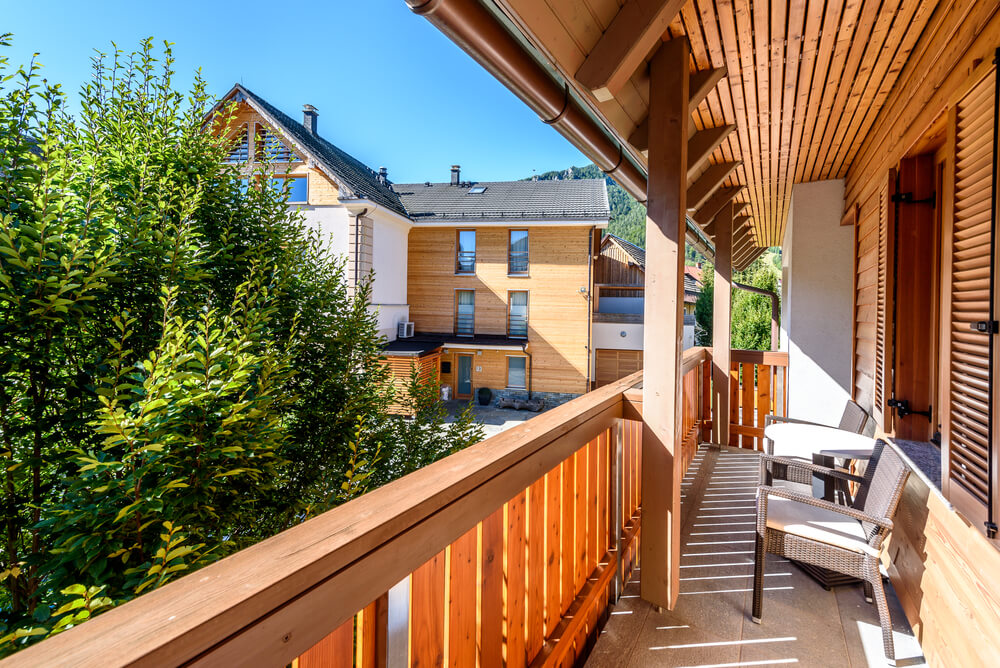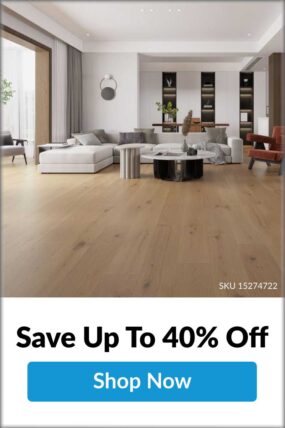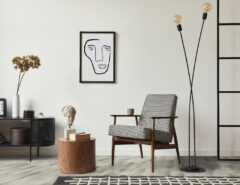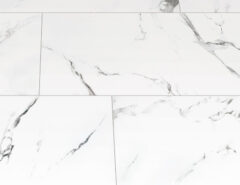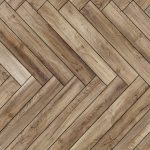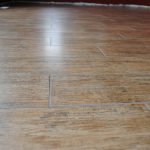
Tiles are incrediblly versatile for floors and walls. But, as accent pieces, you can also rely on tile. Take a look at these four ways to unlock the potential.
***

In North America, we tend to see tiles as being how to cover surfaces intended for heavy use and abuse, like floors, counters, and backsplashes. Here, where I am in Portugal, tiles are considered an essential part of décor, the icing on the cake.
If you’re looking for a way to create a space that stands out from the average room, you might want to do as the Portuguese do, and look a tiling in a whole different way.
Here are four ways to get a different vibe by creating special tile looks.
4 Ideas for Using Tiles as Accents
1. Wainscoting, but tile!
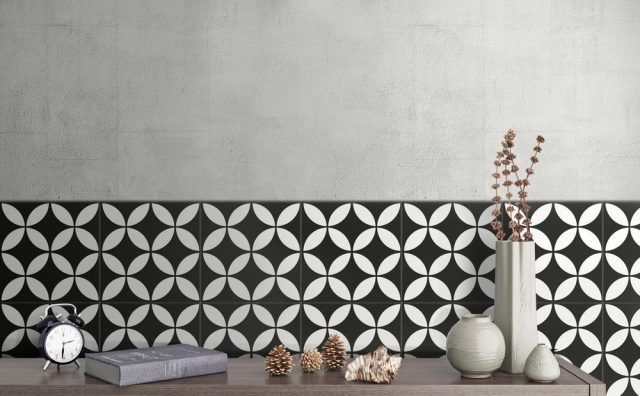
Instead of using wood wainscoting, why not think of a unique tile finish that extends to the same height? Traditionally, wainscoting tends to be used in foyers, stairs, hallways, dining areas, and bathrooms, all for various but similar reasoning.
In eating areas, it’s to protect the wall from chairs being pushed around and banged into plaster. In foyers, it’s to prevent water damage from dripping coats, umbrellas propped against the wall, bags being tossed down, and more. Stairways and halls are high-traffic areas that are traditionally more likely to get dings and scratches.
In all these situations, tiling wouldn’t just do the job too, it’d last for longer, need less upkeep, and work even harder. With the right tiled finish and accent colors in your space, there’s no reason you can’t make it exclaim “Wow!”
2. Tiles chair railing.
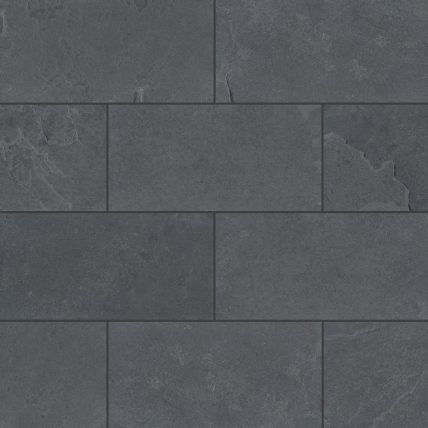
As mentioned above, chair railings prevent chairs from crashing into the wall and leaving dents, chips, and scratches. If you wanted to get the job done with tile, use some great bold ceramic tiles or a nice array of slate to accomplish the same feel but with hardier results.
Finishing a nice 3-to-8-inch band of colored tiles with a nice 1” strip of crown molding would be a departure from the average chair rail while offering greater protection in a dining room or other areas that get heavy use.
3. Creating an accent panel.
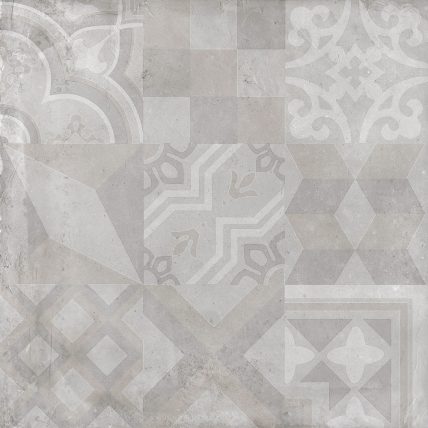
Use nice glass tile or funky painted ceramic tiles to create a neat visual accent in any room. It’s very common to see a panel of tile art in this part of the world, usually created with azujelos, the Spanish and Portuguese tiles you’ll often see in blues and whites, among other vivid looks.
I personally love colored glass tile and think a geometric pattern in a room with nice lighting could look amazing if the right design was employed.
4. Making a stately accent wall.
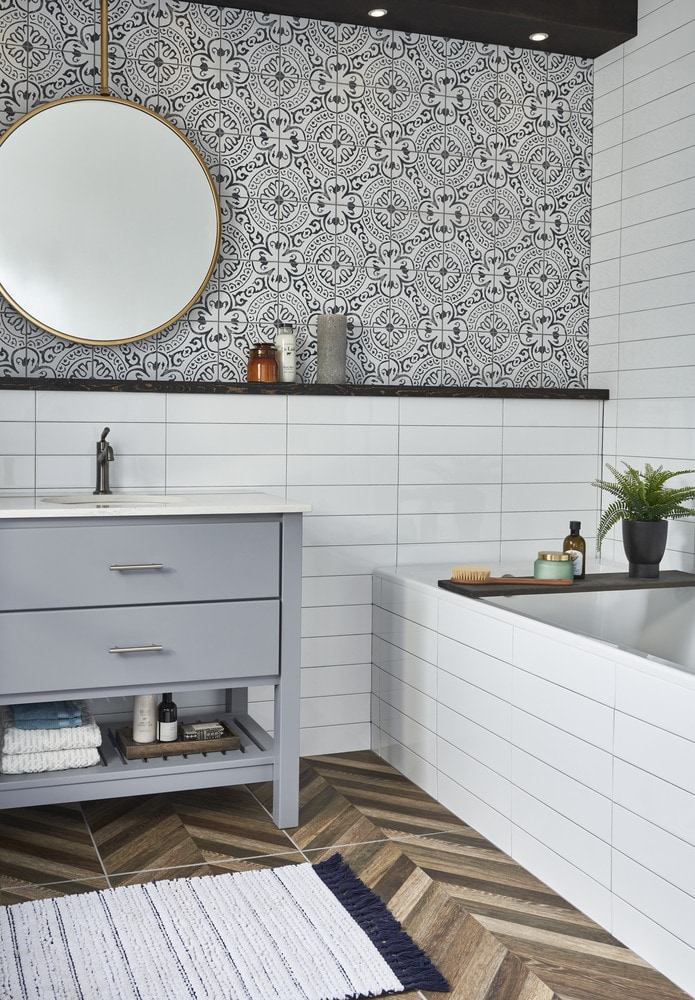
If you’re going after a high-end look in a room, imagine the impact one wall of tile could have. Think of something like a green marble or a nice travertine. Even a black slate wall in a red dining room would scream drama and provide an incredible backdrop for a room destined for entertaining.
Nice metal lighting features, or a rustic wooden shelf, or even a great piece of art would really pop against a bold accent wall, even in a simple slate finish.
Unusual Applications for Usual Materials
It’s easy to get hung up on the way we’re “supposed” to use building materials, but the reality is, it’s your space, and as long as you’re properly installing the materials, anything goes. Hardwood flooring on the walls, or even the ceiling? Sure, if you’re putting it in right, then we usually just call it “paneling,” right? Same is true of ceramic tiling, marble tiles, slate, travertine, and more.
For unique tiling applications, you might want to look at Portuguese, Spanish, and Mexican décor books, but then you can turn your attentions to materials they might never use, say slates or tiles hailing from Africa, Asia, and other parts of the world.
Look for inspiration, but then go with your gut and put your stamp and personality onto the project. It’ll look great!



